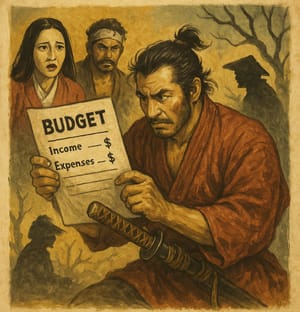There is a paradox involved in appreciating different points of view. If you can see things from all kinds of different perspectives, you have achieved one thing, but have you lost another? If every angle claims the truth, and in some ways is the truth, is it possible to agree on the plot?
This phenomenon actually has a name: the Rashomon effect. The name derives from Akira Kurosawa’s 1950 film Rashomon, in which four witnesses narrate contradictory versions of a crime. The intention of the film is to highlight how perception, memory and self-interest distort reality.
The problem with the excessive flexibility of embracing various perspectives is that truth dissolves into a kaleidoscope of relativism, where no anchor holds. Conversely, being too rigid forces truth into a kind of impregnable fortress, which negates nuance and inquiry. Wisdom is a process of navigation, obviously, supple enough to entertain diverse viewpoints, yet resolute enough to discern a coherent reality.
Personally, like the legion of cynics before me, I think it’s useful to think positively when people are generally thinking negatively, and the other way around. So in that spirit, and without wanting to soft-focus all the problems that undoubtedly exist, what can be said positively about the Budget 2025 fiasco of the past few weeks?
When you think about it, there is a lot. Don’t believe me? Try this…
Bracket creep
First, the obvious. South Africa’s taxes are not going up, or at least not by much. As it happens, all the political discussions in the recent past have focused on VAT, but, actually, not adjusting for bracket creep gains the Treasury more than double a half percentage point rise in VAT. But at least we are not going to see a 2 percentage point increase in VAT.
There is some debate about whether this will transform South Africa’s Budget from a consolidation Budget aimed at reducing debt into a growth Budget aimed at increasing economic growth. Personally, I don’t think the change will magically create a growth Budget, but I don’t think the original version was actually a consolidation Budget either. It was more a tax-and-spend Budget.
But given the ANC’s predilection for tax increases that don’t actually increase growth, this is a step forward. At least from my jaundiced perspective.
Second, one of the things about creating a mess is that it does strengthen the resolve to clean up, and to be more careful about spilling the coffee in the first place. As NWU Business School economist Professor Raymond Parsons points out, the delayed Budget will subject future Budgets to a more intensive consultative process. Nobody wants to see this mess again.
Third, as Parsons also points out, the whole process did identify that there were better options available to balance the Budget on both its spending and tax sides. Whether the ANC and the GNU will actually use these options remains to be seen, but at least the notion that all problems should be solved with tax increases is off the table for the time being.
Fourth, Parsons says the process has emphasised the urgent need for much higher economic growth. This one I’m not so sure about. I just don’t get the vibe from any of the political parties really that they truly think the actual solution lies in higher economic growth. They like the idea, it seems to me, in general terms. But putting it front and centre of the budgeting process? Hmm. Not so much.
‘Trickle down’
But still, one lives in hope. The curse of modern political parlance is that terrible word ‘trickle down’, because it makes it seem that ordinary people only get crumbs off the table when meaningful economic growth happens. That is absolutely not how economic growth works, as countless examples in history have shown. South Africa’s politicians should know this but, in my experience, don’t.
But the fifth and most important result of the Budget fandango is that the ANC must now surely understand that the era of acting with impunity is unequivocally over. Since the election, the ANC has been legislating with the kind of haughty dominion that it had over its 30-year reign. Even if the DA leaves the GNU, that’s not going to happen any more.
So, that is one perspective. The other is that the process of fiscal sustainability is still a goal to be achieved — and that is more urgent now, even more than ever, given the world’s more volatile future. And that is the actual plot, as opposed to all the perspectives. DM
This post first appeared in the Daily Maverick. To signup for Daily Maverick's other fabulous newsletters, click below.
Please do forward this post to anyone who might be interested, and by all means ask them to include their email below to become a 💥 free 💥 subscriber. Till next time.



Join the conversation